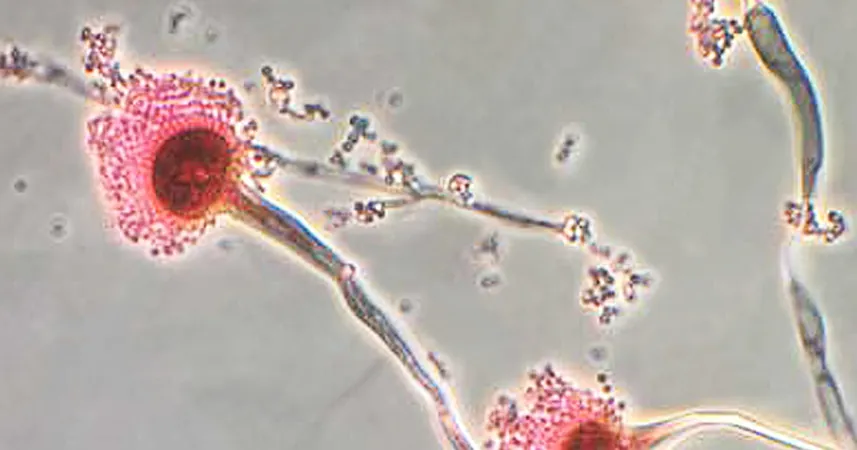
Whaling Activist Paul Watson Released from Greenland Jail After Long Detention
2024-12-17
Author: Lok
In a major turn of events, renowned anti-whaling activist Paul Watson has been freed from prison in Greenland, where he had been held for five long months. His release follows Denmark's refusal to grant Japan's request for his extradition related to incidents from over a decade ago.
The 74-year-old Canadian-American, who gained fame through his participation in the reality series *Whale Wars*, was detained last July when his ship, the M/Y John Paul DeJoria, docked in Nuuk, the capital of Greenland. The arrest was based on a Japanese warrant from 2012, accusing him of causing damage to a Japanese whaling vessel, obstructing business operations, and injuring a crew member during a confrontation in Antarctic waters in February 2010.
Upon his release, Watson expressed his relief over being able to return home and reunite with his family, especially his children. In a video call from Nuuk, he highlighted that his imprisonment had inadvertently drawn attention to what he described as "illegal" Japanese whaling practices.
Watson firmly maintained his innocence, stating, "All the evidence shows that I wasn't even there when this offense supposedly took place. We document everything. Everything is on film." His assertion could play a critical role in his forthcoming discussions with Interpol regarding an outstanding red notice for his arrest.
The Danish justice ministry's decision to reject the extradition request was influenced by the prolonged period since the alleged offenses and the nature of the circumstances involved. Justice Minister Peter Hummelgaard noted that it was "central" to address the length of time Watson had already spent in custody when considering any potential sentencing in Japan.
Watson's ship, part of a vital anti-whaling mission, had stopped to refuel in Nuuk on its way to the North Pacific, where he aimed to intercept a new Japanese whaling ship. This endeavor reflects his ongoing commitment to confronting whaling activities, which have faced severe condemnation from various conservation groups around the world. While Japan insists that whaling is a key aspect of its cultural heritage, it has faced significant backlash for its continued practices, especially after formally withdrawing from the International Whaling Commission and resuming commercial whaling in 2019.
As a figure who has sparked intense debate around marine conservation and whaling, Watson's activism remains as relevant as ever in current environmental dialogues. He previously led the Sea Shepherd Conservation Society, a group known for direct activism against whaling, before departing in 2022 to establish the Captain Paul Watson Foundation. With his freedom secured, Watson is prepared to amplify his anti-whaling campaigns and take legal steps to address the ongoing challenges he faces internationally.
In a world increasingly focused on sustainability and environmental justice, Watson's story is likely to capture the public's attention as the debate over whaling practices continues to evolve. Stay tuned to see what this key figure in marine conservation will do next!



 Brasil (PT)
Brasil (PT)
 Canada (EN)
Canada (EN)
 Chile (ES)
Chile (ES)
 Česko (CS)
Česko (CS)
 대한민국 (KO)
대한민국 (KO)
 España (ES)
España (ES)
 France (FR)
France (FR)
 Hong Kong (EN)
Hong Kong (EN)
 Italia (IT)
Italia (IT)
 日本 (JA)
日本 (JA)
 Magyarország (HU)
Magyarország (HU)
 Norge (NO)
Norge (NO)
 Polska (PL)
Polska (PL)
 Schweiz (DE)
Schweiz (DE)
 Singapore (EN)
Singapore (EN)
 Sverige (SV)
Sverige (SV)
 Suomi (FI)
Suomi (FI)
 Türkiye (TR)
Türkiye (TR)
 الإمارات العربية المتحدة (AR)
الإمارات العربية المتحدة (AR)